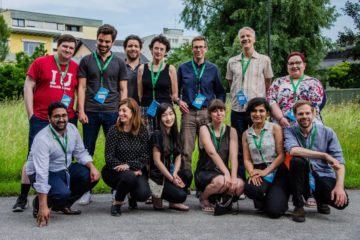In the Okavango Delta, Botswana, there has been a conflict between farmers and lions who have been hunting their free-range cattle for decades. Now, a lot has changed since lions are collared with GPS sensors and farmers receive a warning when they are too close to their village or their cattle: there are less attacks on livestock and more appreciation of the endangered feline predators by the villagers. Together with the organisation CLAWS Conservancy, the University of Siegen has developed the LionAlert system in 2016 to improve the coexistence of lions and people in rural Botswana.
In February 2020, the researchers Helmut Hauptmeier and Margarita Grinko from the University of Siegen headed out again to evaluate the system appropriation. Interviews with local project partners, users served to find out how the system is used and where there is potential for improvement. Especially the purposeful herding in the villages is an important element of the program. The goal is a more peaceful coexistence between people and wild animals, also considering the local economy. In Botswana, the researchers also reached out to government and research institute to promote local economic and academic cooperation. Meanwhile, they also met the wild cats in person – who, unlike other wild animals, did not want their photo to be taken.


